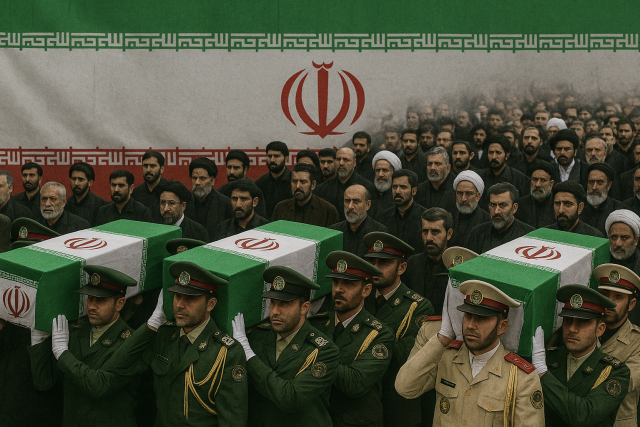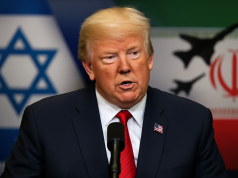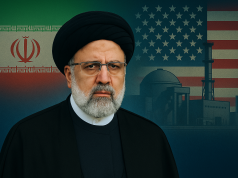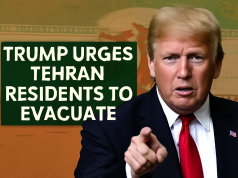A state funeral was conducted in Iran for approximately 60 individuals, including military commanders and nuclear scientists, who lost their lives during the 12-day conflict with Israel. Coffins adorned with the Iranian flag and displaying portraits of the deceased commanders were positioned amidst crowds near Tehran’s Enghelab Square.
The conflict concluded with a ceasefire earlier this week, subsequent to the United States’ direct involvement through aerial bombardments of strategic nuclear sites within Iran. Large assemblies of mourners dressed in black gathered, chanting slogans, waving Iranian flags, and holding portraits of the deceased.
Authorities launched a media campaign encouraging public participation, offering complimentary bus and metro services. Government offices were closed for the entire day. Among those interred on Saturday was Mohammad Bagheri, the highest-ranking military official in Iran, serving as Chief of Staff of the Iranian Armed Forces.
Bagheri was to be buried alongside his wife and daughter, who were fatalities resulting from an Israeli strike. According to Iranian authorities, a total of 627 individuals were killed within Iran. Israeli officials reported that 28 people were killed in Israel as a result of missile attacks by Iran.
Hossein Salami, the Commander-in-Chief of the Islamic Revolutionary Guards, along with nuclear scientists such as Mohammad Mehdi Tehranchi, who serves as the head of Azad University in Tehran, was also among those laid to rest.
Who attended the funeral?
The funeral was attended by distinguished figures, including Iranian President Masoud Pezeshkian and Rear Admiral Ali Shamkhani, an advisor to the Supreme Leader, Ayatollah Ali Khamenei, as shown on state television. Shamkhani sustained injuries in an Israeli strike earlier this month. This event follows US President Donald Trump’s statement indicating that he would “absolutely” consider the possibility of bombing Iran again.
In response to a question posed by BBC’s Nomia Iqbal during a White House press briefing on Friday, he affirmed that he would “without question” target the country if intelligence confirmed that Iran could enrich uranium to concerning levels.
President Trump has also reiterated his claims that Iran has been “destroyed,” and he queried, “Why would the so-called ‘Supreme Leader’ Ayatollah Ali Khamenei, of the war-torn country of Iran, make such a blatant and foolish claim that he won the war with Israel when he knows his statement is false?”
Trump claimed that he knew “exactly where he [Khamenei] was sheltered,” emphasizing that he “would not allow Israel or the US Armed Forces to end his life.” I saved him from a very nasty and shameful death, and he doesn’t have to say, ‘Thank you, President Trump!’
Iran Warned Trump Against Making Disrespectful Statements
Iran’s Foreign Minister, Abbas Araghchi, cautioned President Trump against making “disrespectful” remarks concerning Ayatollah Khamenei, who stated that US and Israeli strikes on Iranian nuclear sites had yielded “nothing significant.” “If President Trump genuinely desires a negotiated agreement, he should set aside the disrespectful and unacceptable tone directed towards Iran’s Supreme Leader, Grand Ayatollah Khamenei,” Araghchi stated on X.
“The resilient and proud Iranian people, who demonstrated to the world that the Israeli regime had no choice but to seek refuge with ‘Daddy’ to avoid being obliterated by our missiles, do not respond amicably to threats and insults.”
Araghchi has admitted that “excessive and serious” damage was done to Iran’s nuclear sites by the recent bombings.
It Remains Unclear How Much of the Iranian Nuclear Program was destroyed – IAEA
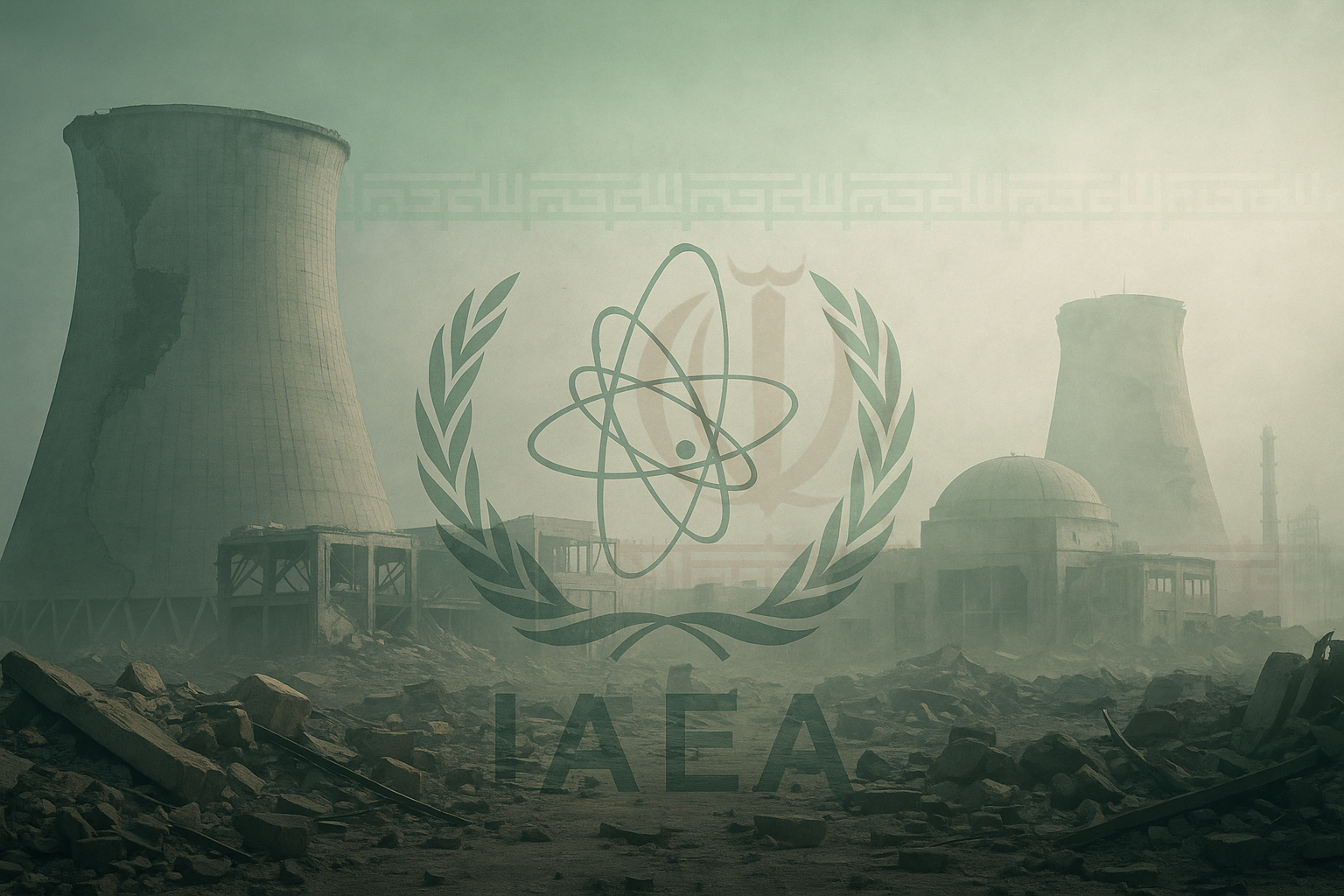
The Director General of the International Atomic Energy Agency (IAEA) has stated that it remains unclear the extent to which Iran’s nuclear capabilities, including highly enriched uranium and the centrifuges necessary for metal purification, have been either destroyed or relocated.
Rafael Grossi, the Director General of the agency, also emphasized that preventing Iran from developing nuclear weapons cannot be achieved through military interventions. “You will not resolve this issue definitively through military means; instead, an agreement must be reached,” he conveyed to CBS News, an American partner of the BBC.
On social media, President Trump announced that he had been engaged in “working on the possible removal of sanctions, and other measures, which would have enhanced Iran’s prospects for a fast recovery.”


